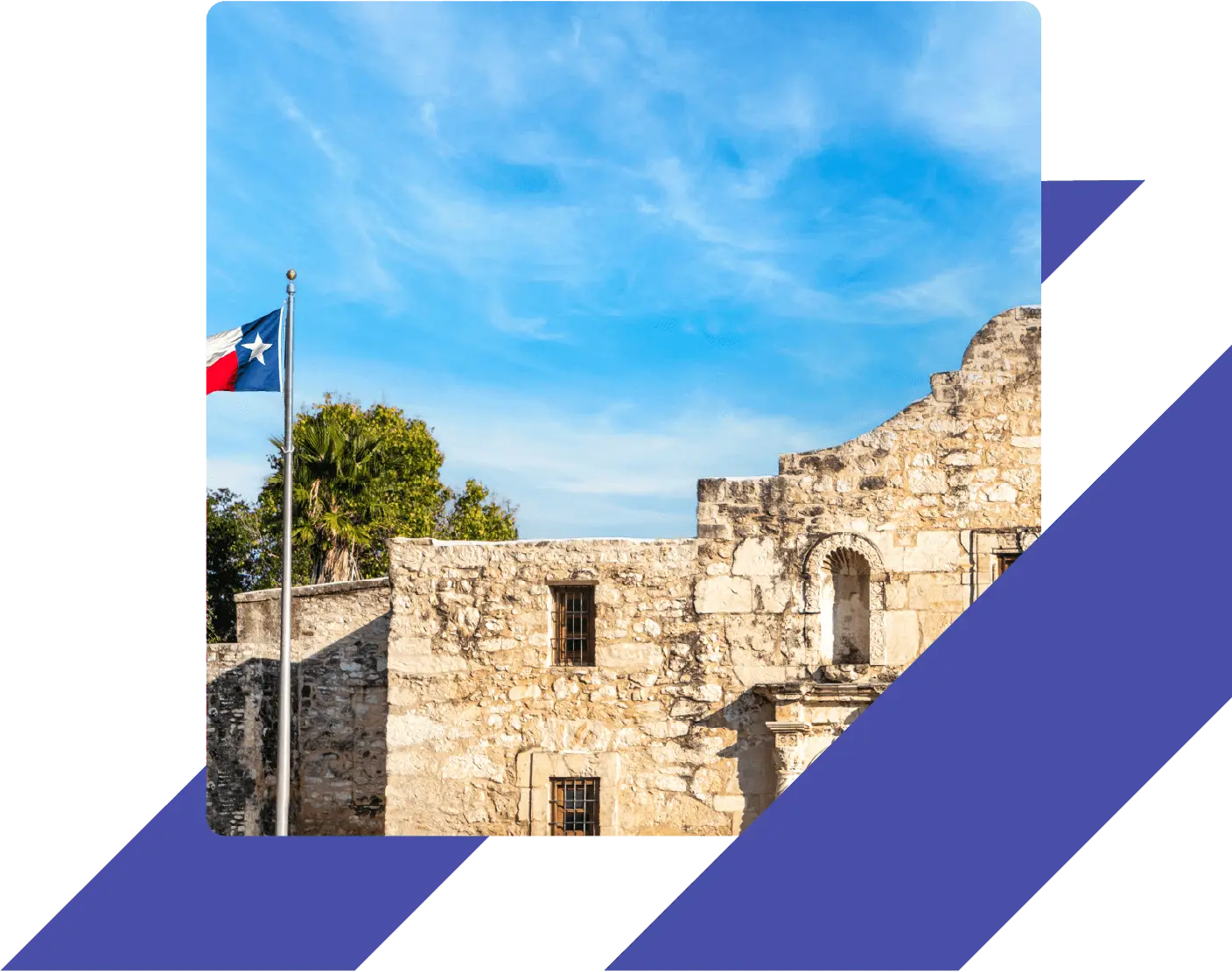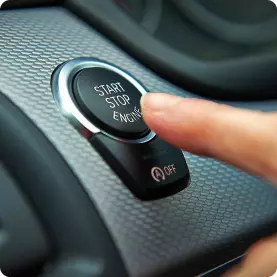Texas DWI Laws: Guide to Drunk Driving Charges and Penalties
In Texas, DWI (Driving While Intoxicated) charges carry serious consequences including jail time, heavy fines, and license suspension. Texas has a zero-tolerance policy for minors and requires ignition interlock devices (IIDs) for repeat offenders and first-time offenders with a BAC of 0.15% or higher.

Getting Started
After a DWI arrest in Texas, you’ll face both administrative proceedings through the Department of Public Safety (DPS) and criminal proceedings through the court system. This guide provides general information about Texas DWI laws, but it’s not legal advice. For case-specific guidance, consult a qualified DWI attorney who specializes in Texas DWI defense.
Important Note: While this page provides detailed information, DUI.org does not offer legal advice. Laws can change, so consult a qualified Texas DWI attorney for personalized guidance.
Definitions to Know
DWI (Driving While Intoxicated)
Driving While Intoxicated is Texas’s legal term for operating a motor vehicle in a public place while intoxicated by alcohol or drugs.
SR-22
A certificate of financial responsibility that proves you maintain the minimum required auto insurance coverage after a DWI conviction.
IID (Ignition Interlock Device)
An Ignition Interlock Device is a breathalyzer installed in your vehicle that prevents it from starting if alcohol is detected on your breath.
Texas Department of Public Safety (DPS)
The Texas Department of Public Safety handles the administrative aspects of DWI cases, including license suspensions, reinstatements, and monitoring of compliance with IID requirements. The DPS enforces license suspensions through the Administrative License Revocation (ALR) program, issues occupational (restricted) licenses, and monitors SR-22 filings. You can find information about alcohol-related offenses and license requirements on the DPS website.
Steps to Take After DWI Arrest in Texas
- Hire an Attorney
A DWI defense attorney can help navigate both administrative and criminal proceedings.
- Request an Administrative License Revocation (ALR) Hearing
You have only 15 days from your arrest to request this hearing to contest your license suspension.
- Apply for an Occupational License
If eligible, you may apply for a restricted license that allows limited driving privileges.
- Install an IID
Required for certain offenses, particularly for repeat offenders or first-time offenders with high BAC levels.
Explore IIDs - File an SR-22 Form
You may be required to maintain this special certificate of insurance for at least two years after a DWI conviction.
- Complete Substance Abuse Evaluation
The court may order an assessment to determine appropriate treatment.
- Pay Fines and Fees
DWI convictions carry significant financial penalties ranging from $2,000 to $10,000 depending on the offense.
- Complete DWI Education Program
You’ll need to complete a state-approved alcohol education program.
- Complete DWI Education Program
Mandatory alcohol education courses through SATOP.
- Attend Court Proceedings
Your criminal case proceeds through court separately from administrative actions.
- Serve Probation
If sentenced to probation, you must comply with all conditions, including regular check-ins and abstaining from alcohol.
- Avoid Further Violations
Additional offenses during probation or license suspension can result in severe consequences, including extended suspension periods and jail time.
DWI Laws in Texas
What Are the Legal Driving Alcohol Limits in Texas?
In Texas, it’s illegal to drive if you’re intoxicated by alcohol, drugs, or both. The law defines intoxication as having a blood alcohol concentration (BAC) above the legal limit or not having normal use of mental or physical faculties due to substance use. Police typically measure BAC through blood tests, breath tests, or both during a DWI stop.
| Driver Category | Legal BAC Limit |
| Drivers over 21 | 0.08% |
| Commercial Drivers | 0.04% |
| Drivers under 21 | 0.00% (Zero Tolerance) |
Felony vs Misdemeanor DWI Charges
Texas classifies DWI offenses as either misdemeanors or felonies depending on the circumstances and prior record of the offender.
First and second DWI are typically classified as misdemeanors. A first-time DWI with a BAC below 0.15% is a Class B misdemeanor, punishable by up to 180 days in jail and fines up to $2,000. A first-time DWI with a BAC of 0.15% or higher is a Class A misdemeanor, carrying up to one year in jail and fines up to $4,000. A second DWI offense is a Class A misdemeanor.
A DWI becomes a felony in Texas under these circumstances:
- Third or subsequent DWI offense (third-degree felony)
- DWI with a child passenger under 15 years old (state jail felony)
- DWI resulting in serious bodily injury (intoxication assault – third-degree felony)
- DWI resulting in death (intoxication manslaughter – second-degree felony)
Felony DWI convictions can result in prison sentences from 2 to 20 years, depending on the specific charge and circumstances.
What Are Drunk Driving Diversion Programs in Texas?
Texas offers DWI intervention programs for first-time offenders in some jurisdictions. These programs typically involve probation, community service, alcohol education, treatment, and regular court appearances. Successful completion may lead to reduced charges or penalties, but eligibility varies by county and individual circumstances.
Refusing a Chemical Test Under Texas DWI Law
Texas has an “implied consent” law, meaning that by driving in Texas, you’ve agreed to chemical testing if arrested for DWI. Refusing a breath or blood test has serious consequences:
| Offense | Refusal Penalty |
1st Refusal | 180-day license suspension |
| 2nd or Subsequent Refusal | 2-year license suspension |
Even if you refuse testing, officers can obtain a warrant to draw your blood forcibly in many circumstances.
DWI Penalties & Consequences
Penalties for DWI Offenses in Texas
Texas imposes escalating penalties for DWI convictions:
1st DWI
Jail Time: 3-180 days
Fines: Up to $2,000
License Suspension: 90 days to 1 year
Other Requirements: DWI education, possible IID
1st DWI (BAC ≥ 0.15%)
Jail Time: Up to 1 year
Fines: Up to $4,000
License Suspension: 1 year
Other Requirements: DWI education, IID required
2nd DWI
Jail Time: 30 days to 1 year
Fines: Up to $4,000
License Suspension: 180 days to 2 years
Other Requirements: DWI intervention program, IID required
3rd DWI
Jail Time: 2-10 years
Fines: Up to $10,000
License Suspension: Up to $10,000
Other Requirements: Treatment program, IID required
DWI with Child Passenger
Jail Time: 180 days to 2 years
Fines: Up to $10,000
License Suspension: 180 days
Other Requirements: IID required
Aggravating Factors That Increase Texas DWI Penalties
In Texas, these aggravating factors lead to elevated criminal charges, harsher fines, longer jail or prison time, extended license suspensions, and additional requirements:
- High BAC (0.15% or above)
- Child passenger under 15 years old
- Causing an accident resulting in injury or death
- Open container of alcohol in the vehicle
- Multiple previous DWI convictions
- Driving with a suspended license due to a prior DWI
- Refusing breath or blood testing
Driving Without a Valid License
Driving while your license is suspended after a DWI is a serious offense in Texas. If caught, you face additional charges for Driving While License Invalid (DWLI), which carries penalties including:
- Additional fines up to $4,000
- Jail time up to 180 days
- Extended license suspension period
- Ineligibility for an occupational license
- Vehicle impoundment
These consequences compound your existing DWI penalties and create a cycle of legal problems that become increasingly difficult to resolve. Additionally, driving without a valid license typically violates auto insurance policies, leaving you financially vulnerable if involved in an accident.
License Suspension
Who Determines if You Can Continue Driving After a DWI
In Texas, both the Department of Public Safety (DPS) and the courts play roles in determining driving privileges after a DWI.
The DPS handles administrative license suspensions through the Administrative License Revocation (ALR) program. This process is separate from your criminal case and can result in license suspension even if you’re not convicted of DWI. You have the right to request an ALR hearing within 15 days of arrest to contest this suspension.
The criminal courts impose additional license suspensions upon conviction. Court-ordered suspensions run consecutively with (not concurrently to) administrative suspensions in many cases.
How Long Will Your License Be Suspended?
A DWI arrest and/or conviction in Texas results in license suspension periods that vary based on the offense and circumstances:
| Offense | Suspension Period |
| 1st DWI (Failed Test) | 90 days to 1 year |
| 1st DWI (Test Refusal) | 180 days |
| 2nd DWI | 180 days to 2 years |
| DWI with BAC ≥ 0.15% | Up to 1 year |
| DWI with Child Passenger | 180 days to 2 years |
| Intoxication Assault/Manslaughter | 180 days to 2 years |
Steps to Reinstate Your License
To get your license back after a DWI-related suspension in Texas:
- Serve your full suspension period
- Pay reinstatement fees ($125 plus additional surcharges)
- Provide proof of insurance through an SR-22 form for at least two years, if required
- Complete required DWI education programs
- Install an IID if ordered by the court or required for an occupational license1
- Submit all required documentation to the Texas DPS
Restoring Your Driving Privileges
Texas offers options for limited driving privileges during a suspension period, but these require strict compliance with state regulations.
Eligibility for an Occupational Driver’s License
An occupational license (also called an “essential need” license) allows limited driving for:
- Work-related transportation
- Educational activities
- Essential household duties
You may be eligible if:
- You have no more than one occupational license in the past 10 years
- You’ve served at least 30 days of your suspension (for most cases)
- You have proof of SR-22 insurance, if required
- You’re willing to install an IID if required
- Your license wasn’t suspended for a medical condition or delinquent child support
Those with multiple DWI convictions or intoxication manslaughter/assault convictions face additional waiting periods and restrictions.
How to Apply for Temporary Restricted Driver’s License
To obtain an occupational license in Texas:
- File a petition with the court in your county of residence
- Provide documentation proving your essential need to drive
- Submit an SR-22 insurance certificate, if required
- Install an IID in all vehicles you operate, if required
- Attend the court hearing
- Pay all required fees
- Submit the court order and required documentation to Texas DPS
- Maintain a driving log of all travel while using the occupational license
Texas Ignition Interlock Device (IID) Requirements
Texas law requires an ignition interlock device for:
- All repeat DWI offenders
- First-time offenders with a BAC of 0.15% or higher
- Most people seeking an occupational license after a DWI
The IID device must be installed in all vehicles you own or regularly operate. You’re responsible for all installation and monitoring costs (typically $70-100 for installation and $60-90 monthly for monitoring). The device requires you to provide a breath sample before starting your vehicle and at random intervals while driving. Any failed tests are reported to monitoring authorities. Tampering with or attempting to circumvent the device is a criminal offense.

Selecting the right ignition interlock provider can make a world of difference.
SR-22 Insurance Requirements
After a DWI conviction in Texas, you may be required to:
- Obtain an SR-22 certificate from an authorized insurance provider
- Maintain continuous coverage for at least two years
- Pay increased insurance premiums (typically 25-100% higher than standard rates)
- File the SR-22 with the Texas DPS
If your SR-22 coverage lapses during the required period, your insurer will notify the DPS, and your license will be immediately suspended again. You’ll need to restart the process, including paying all reinstatement fees.

Let us help connect you to the right licensed insurance specialist for you.
Substance Abuse Assessment and Treatment
Texas courts typically mandate substance abuse evaluation and treatment after a DWI conviction. This includes:
- Assessment A professional evaluation to determine the extent of any substance use issues
- Education
A 12-hour DWI education program for first-time offenders, which must be completed within 180 days of probation to avoid license suspension - Intervention
A 32-hour DWI intervention program for repeat offenders - Treatment
Additional counseling or treatment as determined by the assessment - Follow-up
Ongoing monitoring and testing during probation
These programs must be completed through Texas-approved providers, and you’re responsible for all associated costs.

Understand what to expect and how to prepare for a substance abuse evaluation.
FAQs About DWIs in Texas
How long will a DWI stay on my record in Texas?
A DWI conviction remains on your criminal record permanently unless you qualify for and complete an expunction or non-disclosure process.
Can I refuse a breathalyzer test in Texas?
You can refuse, but this triggers automatic license suspension and may lead to a forced blood draw through a warrant.
Will I lose my commercial driver’s license (CDL) after a DWI?
Yes, a DWI in any vehicle results in CDL disqualification for one year for a first offense and lifetime disqualification for a second offense.
Do I have to install an IID for a first offense?
It’s required for first offenses with a BAC of 0.15% or higher and often required for occupational licenses.
Can I drive to Mexico or Canada with a DWI conviction?
Both countries have restrictions on entry for those with DWI convictions, especially recent ones or multiple offenses.
Sources
- Texas Department of Public Safety. Alcohol-Related Offenses. https://www.dps.texas.gov/section/driver-license/alcohol-related-offenses
- Texas Department of Transportation. Impaired Driving. https://www.txdot.gov/safety/driving-laws/impaired-driving.html
- FindLaw. Overview of Texas DWI Laws. https://www.findlaw.com/state/texas-law/overview-of-texas-dwi-laws.html
- National College for DUI Defense. Texas DWI Laws. https://www.ncdd.com/texas-dwi-laws
- Texas Department of Public Safety. Ignition Interlock Devices. https://www.dps.texas.gov/section/driver-license/ignition-interlock-devices
- Texas Department of Public Safety. Financial Responsibility Insurance Certificate (SR-22). https://www.dps.texas.gov/section/driver-license/financial-responsibility-insurance-certificate-sr-22
- Texas Department of Licensing and Regulation. Court Ordered Drug and Alcohol Education Programs. https://www.tdlr.texas.gov/court-ordered/drug-and-alcohol/search/?type=DWIE
Get support.
What is next? We can help you through the process. Give us a little information and we can support you through the next steps.
All fields are required.